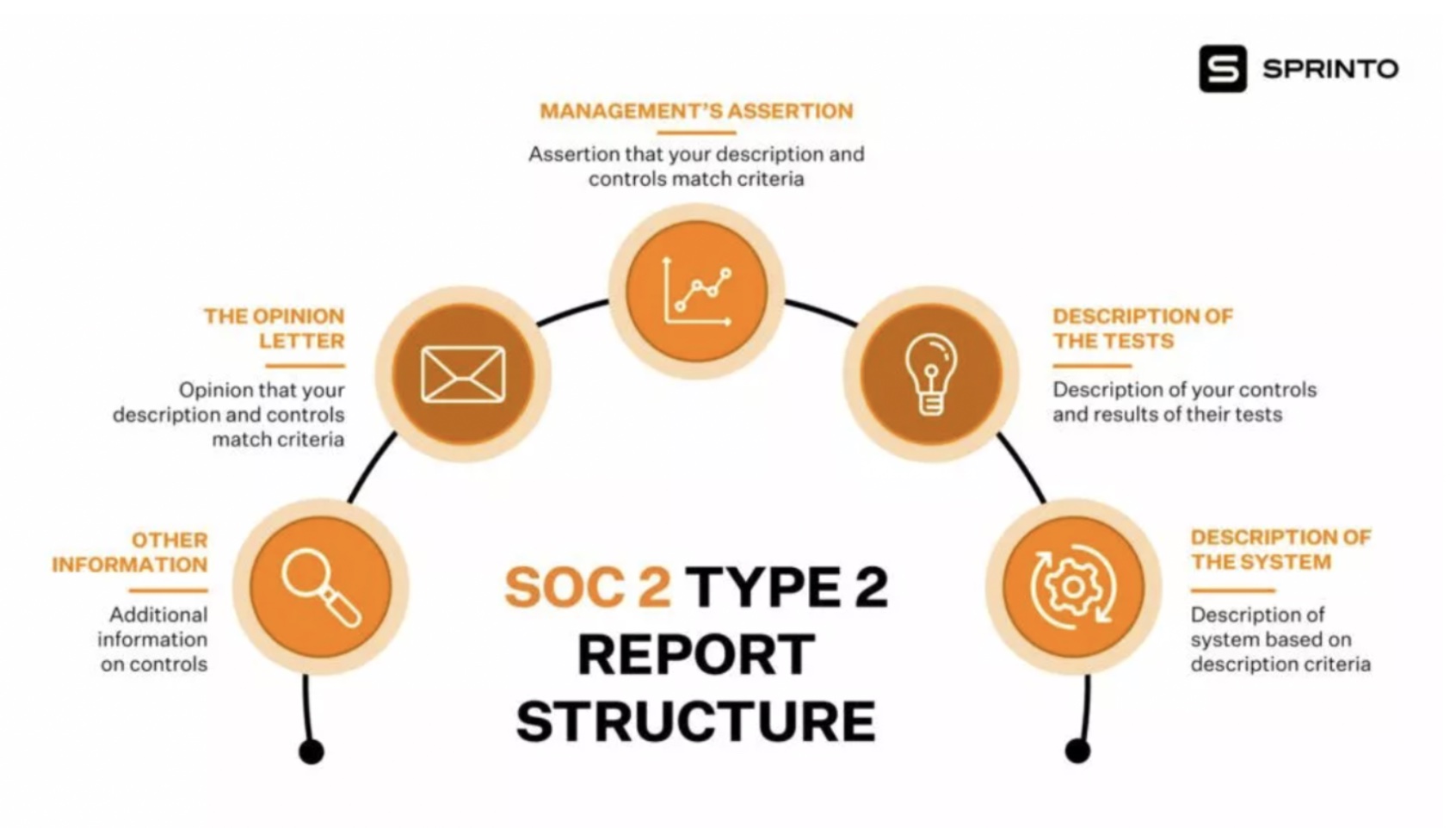A robust security framework with SOC 2 compliance will make your clients trust your business!
Why do SaaS providers need SOC 2?
SOC 2 (Service Organization Control 2) is a security and privacy audit and certification standard for organizations. It applies to organizations that store, process, or transmit customer data in the cloud. SaaS providers need SOC 2 to demonstrate to their customers that they have strong controls in place to protect their data. They need it to ensure the confidentiality and privacy of sensitive information and meet industry security and privacy standards. Having a SOC 2 certification helps SaaS providers build trust with their customers and can be a competitive advantage in a crowded market.
Understanding SOC 2 is necessary for a lot of businesses that deal with personal data. SOC 2 is a type of audit & certification that helps ensure that these companies have strong security and privacy controls in place. This certification is like a “stamp of approval” that shows that a company has been independently audited and found to have the right systems & processes in place to protect customer data. It helps give customers peace of mind that their data is safe.

Benefits of SOC 2 implementation
There are several benefits of implementing SOC 2 controls:
- Higher security and privacy: SOC 2 helps organizations identify and mitigate risks to customer data, improving overall security and privacy.
- More customer trust: Having SOC 2 certification demonstrates to customers that an organization takes security and privacy seriously, building trust and credibility.
- Competitive advantage: With more and more companies operating in the cloud, SOC 2 certification can give a company a competitive edge in attracting and retaining customers.
- Compliance: SOC 2 aligns with industry regulations and standards, helping organizations meet compliance requirements and avoid potential fines or legal action.
- Better internal processes: The SOC 2 audit process can help organizations identify areas for improvement in their internal processes and controls, leading to better overall risk management.
Which SOC level would be optimal for your organization?
Each level of the SOC framework provides a different level of detail and assurance about an organization’s controls and is relevant to different types of organizations and types of customer data. The SOC (Service Organization Control) framework consists of three levels:
SOC 1
- This level focuses on controls related to financial reporting and is typically relevant to organizations that provide services to other organizations that are involved in financial reporting.
SOC 2
- This level focuses on controls related to security, availability, processing integrity, confidentiality, and privacy. It is relevant to organizations that store, process, or transmit customer data in the cloud. The primary distinction between SOC 1 and SOC 2 is that the former concentrate on financial reporting while the later does so in addition to operations and compliance.

SOC 3
- This level is a public version of SOC 2, with a simplified report that can be made available to customers and the public. It provides a high-level overview of an organization’s controls related to security, availability, processing integrity, confidentiality, and privacy.
Organizations need to assess their specific needs and risks when deciding which SOC level to pursue. They should also consider the cost and resources required to prepare for and undergo the audit. They should also be aware of all the potential benefits in terms of increased customer trust & credibility. Choosing the right SOC level for an organization depends on several factors, including:
- Customer data type: When an organization stores, processes, or transmits sensitive customer data, they may need SOC 2. It could be financial information, personal data, or health information of customers.
- Industry regulations: If an organization operates in an industry with specific security & privacy regulations, such as healthcare or finance, they may need SOC 2 to meet compliance requirements.
- Customer expectations: If customers expect a high level of security and privacy for their data, an organization may need SOC 2 to build trust and credibility with customers.
- Services offered: If an organization provides services that impact the financial reporting of its customers, such as accounting/payroll services, they may need SOC.
Build and maintain the reputation of your business with SOC 2
SOC 2 is focused on security, availability, processing integrity, confidentiality, and privacy (collectively known as the “Trust Service Criteria” or TSC). Each of these categories is evaluated during a SOC 2 audit, and the auditor will provide a detailed report on the organization’s controls and the effectiveness of those controls. The auditor’s report provides valuable information for organizations and their customers, demonstrating the commitment to security, privacy, and reliability.

The five TSC categories are:
Security
- This category focuses on the measures an organization has in place to protect customer data from unauthorized access, theft, or destruction.
Availability
- This category focuses on the measures an organization has in place to ensure that customer data is available and accessible when needed.
Processing integrity
- This category focuses on the measures an organization has in place to ensure that customer data is processed accurately and consistently.
Confidentiality
- This category focuses on the measures an organization has in place to protect the confidentiality of customer data, ensuring that it is not disclosed to unauthorized parties.
Privacy
- This category focuses on the measures an organization has in place to protect the privacy of customer data, ensuring that it is used while following applicable laws and regulations.
Conclusion
For these reasons, getting SOC 2 compliant is a no-brainer for SaaS firms in today’s day & age. This is where Sprinto can make a huge difference & solve your compliance problems. It can help you develop and maintain customer trust which in turn will build brand loyalty. Overall, it can be a fantastic investment for the future of your SaaS business. It will help to build credibility, and security for your business and your customers.
You may be interested in: Overlooked problems that some SaaS startups face

